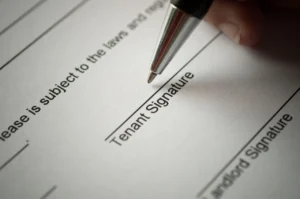7 Action Steps You Need to Take to Get Ready for an Unlawful Detainer Trial
This article about unlawful detainers is written by contributing author, Nate Bernstein, Esq., of LA Real Estate Law Group.
INTRODUCTION: Many members of AAOA have been involved in unlawful detainer/eviction cases in one form or another. Eviction cases take many forms and factual circumstances. Some cases go smoother than others! Some of the most common scenarios are either a tenant was not paying rent on time, or a tenant is being a nuisance by disturbing the quiet enjoyment of neighbors in the apartment building.
When unlawful detainer cases are filed, under state law, they receive “trial setting” priority in the courthouse. This means the trial is set quickly, usually within 21 days after a “Memorandum to Set for Trial” is filed by the plaintiff landlord in Court. If your property is in a rent control jurisdiction like the City of Los Angeles, the grounds for unlawful detainer are set forth in the local rent stabilization ordinance, which is part of the municipal code. If your property is not in a rent control city- lucky you! You have more flexibility in terms of serving a notice to terminate the tenancy, although you must comply with state law notice requirements, case law, and the local rules of the Court.
the local rules of the Court.
To get you through the process of being a party in an unlawful detainer action with a level of comfort and confidence, there are a few things that you should do to prepare for the unlawful detainer trial so you are organized and mentally prepared for the process and the trial. Here is a useful checklist to review with your attorney:
- REVIEW THE COMPLAINT AND ANSWER: Review the complaint, summons, and defendant’s answer, and all the exhibits. Does your complaint need amending? The tenant’s answer sets forth affirmative defenses that the tenant may try to argue at trial to win the case. Make a list of what facts and exhibits you can present to counter and defeat the tenant’s affirmative defenses.
- REVIEW THE EXHIBITS: Review your Notice to Terminate the tenancy, the proof of service of the Notice to Terminate the tenancy, the rental agreement, rental payment history, and the calculations to determine how much rent, daily damages, and costs are due on the date of trial. It is a good practice to bring to court as an exhibit your business license, and proof of registration with the local city housing department if you are in a rent control city because a tenant may argue as a defense that you are not registered with these agencies. If you are running your business as a corporation or LLC, you should confirm that your entity is in good standing with the Secretary of State. Your attorney should bring a sufficient amount of exhibit copies to court.
- WITNESSES SHOULD BE READY TO TESTIFY: Compile a witness list and have your attorney serve subpoenas if necessary to third party witnesses. Review the case and the complaint with your attorney and primary trial If you are involved in an unlawful detainer situation where the tenant is alleged to be a nuisance you should serve trial subpoenas to any neighbors who will testify in your favor to help prove the nuisance allegations. You have the burden of proof. If the tenant is contesting proper service of the Notice to Terminate the tenancy, please have your process server or the person who served the Notice to Terminate the tenancy appear in court as your witness to counter these allegations.
- JURY TRIAL: Check to see if the tenant has posted jury fees and filed a counter memorandum to request a jury trial. If so, you should have your attorney prepare appropriate jury instructions and special verdict forms to bring to the trial so you are prepared for a jury trial. If you have time, you may want to file a Motion for Summary Judgment against the tenant to try to get an early judgment and avoid a jury trial.
- IS POSSESSION OF THE PREMISES AT “ISSUE”?: The primary issue in an unlawful detainer case is possession of the property. Before the trial date, check to see if the tenant has “caved in” and has vacated the premises. Please check with your property manager or neighbors to confirm whether possession is at issue. If possession is no longer at issue, then you may convert the case into a collection case if the tenant owes back rent and other charges, and is collectible.
- WHO WILL BE THE TRIAL JUDGE?: On the day of trial you will have to face either a judge pro tem, a court commissioner, or a fully credentialed judge who will conduct your trial and will decide your case. Certain judges or commissioners may have a bias that favor either tenants or landlords, you should discuss with your attorney whether you want be in front of a judge, commissioner, or a judge pro tem. Ask your attorney whether they have had a case with the proposed judge in the past, and what happened in that case. You can also look up the judge or commissioner online to see if there is any information on the person, and whether it is positive or negative. If you want to have a fully credentialed judge try your case, then don’t agree to have a commission or judge pro tem hear the case, your case will be assigned to a judge. You may have to wait in the hallway before a judge is available to hear your case.
- WORK OUT A SETTLEMENT WITH THE TENANT IF POSSIBLE: At court when all parties are present before the trial is about to commence is the perfect time to negotiate a settlement and enter into a written and signed stipulation for entry of judgment with the tenant. Perhaps you may need to give the tenant a few extra days to move out or a small rent concession. You should have a well drafted, specific, and clear stipulation and agreement that applies to all parties and all issues. Having a well drafted stipulation for judgment and settlement with a “drop dead date” to vacate the premises, that binds all tenants in the unit, and that allows for a sheriff’s lock out after a date certain is truly in your best interest. If the tenant does not have an attorney, ask the judge to make sure the tenant understands all of the terms of the stipulation, and make sure that the tenant personally signs and dates the stipulation, and make sure the judge signs it as well.
CONCLUSION: Be Prepared and Confident
This seven point list is not an exhaustive list for preparing for your day in eviction court, this is just a starting point to get you ready for an unlawful detainer trial. You should consult with your attorney on all issues, questions, procedures, and dealing with uncertainties. If you follow the steps on this checklist you should have a level of comfort going into the trial. When you let a judge or jury decide your case, there is no guaranty of victory. Try to settle the case in writing with your tenant if you can. If there is any problem, you can request a continuance from the court, but for most garden variety non-payment of rent eviction cases, you should be able to complete your business in the first go around.
 The author, Nate Bernstein, Esq., is the Managing Counsel of the LA Real Estate Law Group, a Los Angeles based real estate and business law firm. You can contact Nate at (818) 383-5759 or visit www.larealestatelawgroup.com. The firm serves clients throughout Southern and Northern California. Nate Bernstein is a 22 year veteran Los Angeles real estate and business attorney, transaction and trial lawyer. Mr. Bernstein also has expertise on bankruptcy law, the federal bankruptcy court system, creditor’s rights, and debtor’s bankruptcy options. He previously served as Vice President and In House trial counsel at Fidelity Title Insurance Company, a Fortune 500 company, and in house counsel at Denley Investment Management Company, a large privately held company. Nate Bernstein created www.laquiettitleattorney.com, a leading educational resource on quiet title real estate litigation. Nate has personally litigated more than 40 real estate trials, and has settled more than 200 complex real estate and business cases.
The author, Nate Bernstein, Esq., is the Managing Counsel of the LA Real Estate Law Group, a Los Angeles based real estate and business law firm. You can contact Nate at (818) 383-5759 or visit www.larealestatelawgroup.com. The firm serves clients throughout Southern and Northern California. Nate Bernstein is a 22 year veteran Los Angeles real estate and business attorney, transaction and trial lawyer. Mr. Bernstein also has expertise on bankruptcy law, the federal bankruptcy court system, creditor’s rights, and debtor’s bankruptcy options. He previously served as Vice President and In House trial counsel at Fidelity Title Insurance Company, a Fortune 500 company, and in house counsel at Denley Investment Management Company, a large privately held company. Nate Bernstein created www.laquiettitleattorney.com, a leading educational resource on quiet title real estate litigation. Nate has personally litigated more than 40 real estate trials, and has settled more than 200 complex real estate and business cases.













 Accessibility
Accessibility